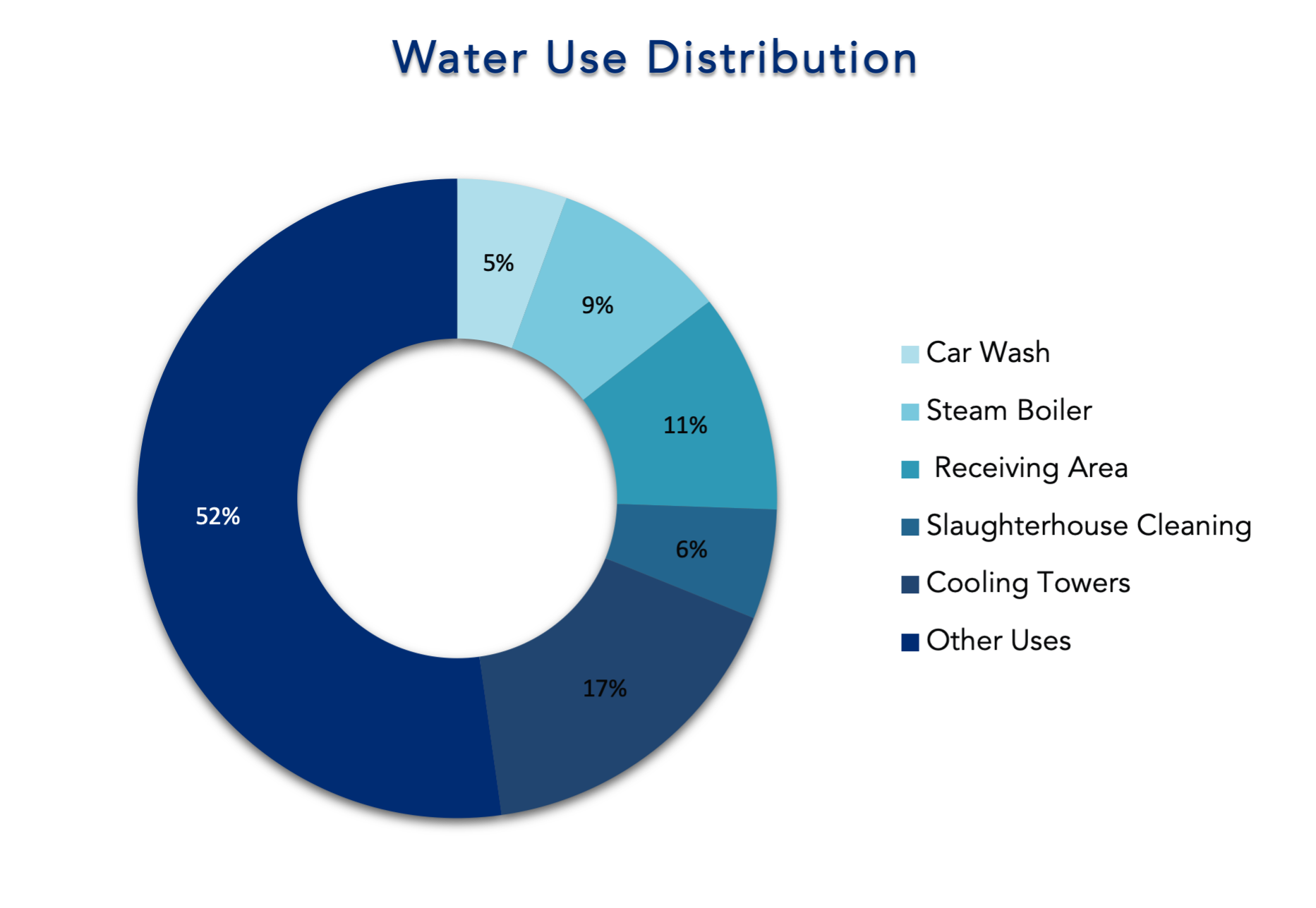Case summary
Khairat Al-Shamal is a private poultry company based in al Mafraq, Jordan, producing broiler chicken for the local Jordanian market. Khairat Al-Shamal was established in 2006 as a family business and currently produces around 80,000 chickens per day and is one of the top five poultry producers in Jordan. Khairat Al-Shamal plans to expand in the Jordanian market but faces the challenge of fresh water supply. Besides the company’s groundwater well, the company purchases between 40% to 50% of its total water consumption of around 900 cubic metres per day (m3/day) from other sources, which are delivered to its facility by truck. The cost of the delivered water is more than 2 Jordanian Dinar per cubic metre (JOD/m3) - almost eight times the cost of water from the well). In this case, there is a very large (water) saving potential if treated wastewater is used instead of purchased water. By adding a tertiary treatment component to the company’s existing wastewater treatment plant, wastewater can be treated to reach quality levels acceptable for reuse back in the industrial facility. With the tertiary treatment unit in place, the company is expected to be able to recover up to 400 m3/day of treated wastewater for reuse at its facility.
Key information
| Khairat Poultry Industries | |
| Location | Mafraq, Jordan |
| Website | |
| Year of foundation | 2006 |
| Industrial sector / sub-sector | Food processing |
| Products & volumes | 80,000 chickens per day |
| No. of employees | 1,000+ employees |
| Total water consumption | approx. 270,000 m3 per year |
Non-Product Output Water Distribution
| Break down for water usage | Consumption (m3/day) | Percentage (of total water use) |
| Car wash | 50 | 5.6 |
| Steam boiler | 80 | 8.9 |
| Receiving area | 100 | 11.1 |
| Slaughterhouse cleaning | 50 | 5.6 |
| Cooling towers | 150 | 16.6 |
| Other uses (chillers, de-feathering unit) | 470 | 52.2 |
| Total | 900 | 100.0 |

**Non-Product Output water use
Water cost structure
The challenge
The company has in recent years increased their production rate which have affected their need for additional freshwater resources. At the same time, the generation of the company’s groundwater well has declined by around 40%, and additional freshwater is now supplied to the facility by contractors. Meanwhile, a daily wastewater effluent of 900 m3 is treated (secondary treatment) and partially used for irrigation of olive trees around the factory with no other reuse practices to leverage these precious resources.
Water efficiency need
Based on the initial analysis of water data and the available infrastructure in the facility, the following Water Efficiency Measures (WEM) have been identified to improve water use efficiency at Khairat Al-Shamal with focus on wastewater recycling and reuse through introducing tertiary treatment technologies. The proposed solution includes ceramic filter units followed by reverse osmosis unit (RO) to treat up to 400 m3/day with a total investment cost of JOD 290,000 and a payback period of around 1.2 years. The validity of proposed measures is tied to the company's ability to obtain a permit for reuse by the local authority - Ministry of Environment in this case. The following table shows the description of the proposed measures and their payback calculation.
| # | Title of WEM | Water saving | Cost saving | Invest- ment Cost (in JOD) | Simple payback (in years) | Raw water saving (in %) |
| 1 | Installation of a ceramic filtration system with a capacity of 40 m3/hour (including concrete containment) | 400 m3/day | 800 JOD/day | 120,000 | 1.2 | 40 - 50 |
| 2 | Installation of a new RO unit to treat water after the ceramic filter with a capacity of 40 m3/hour | 70,000 | ||||
| 3 | Install storage tank for treated water with a capacity of 1,000 m3 | 100,000 | ||||
| Total | 120,000 m3/year* | 240,000 JOD/year* | 290,000 |
|
| |
* based on 300 working days per year and an average price of 2 JOD/cubic meter for externally-supplied water.
Potential Impact
- Saving up to 120,000 m3/year of fresh water supplies with a total value of JOD 240,000 (ca. USD 340,000) by applying tertiary treatment measures and reuse
- Prolong the life of the company's groundwater and ensure sufficient water supply for business continuity and improve potential for business growth.
- Have a proven case for utilizing the remaining 500 m3/day wastewater via tertiary treatment for any future expansion.
Kahirat Al-Shamal Factsheets(PDF)
This infographic summarises key information concerning Khairat Al-Shamal.
